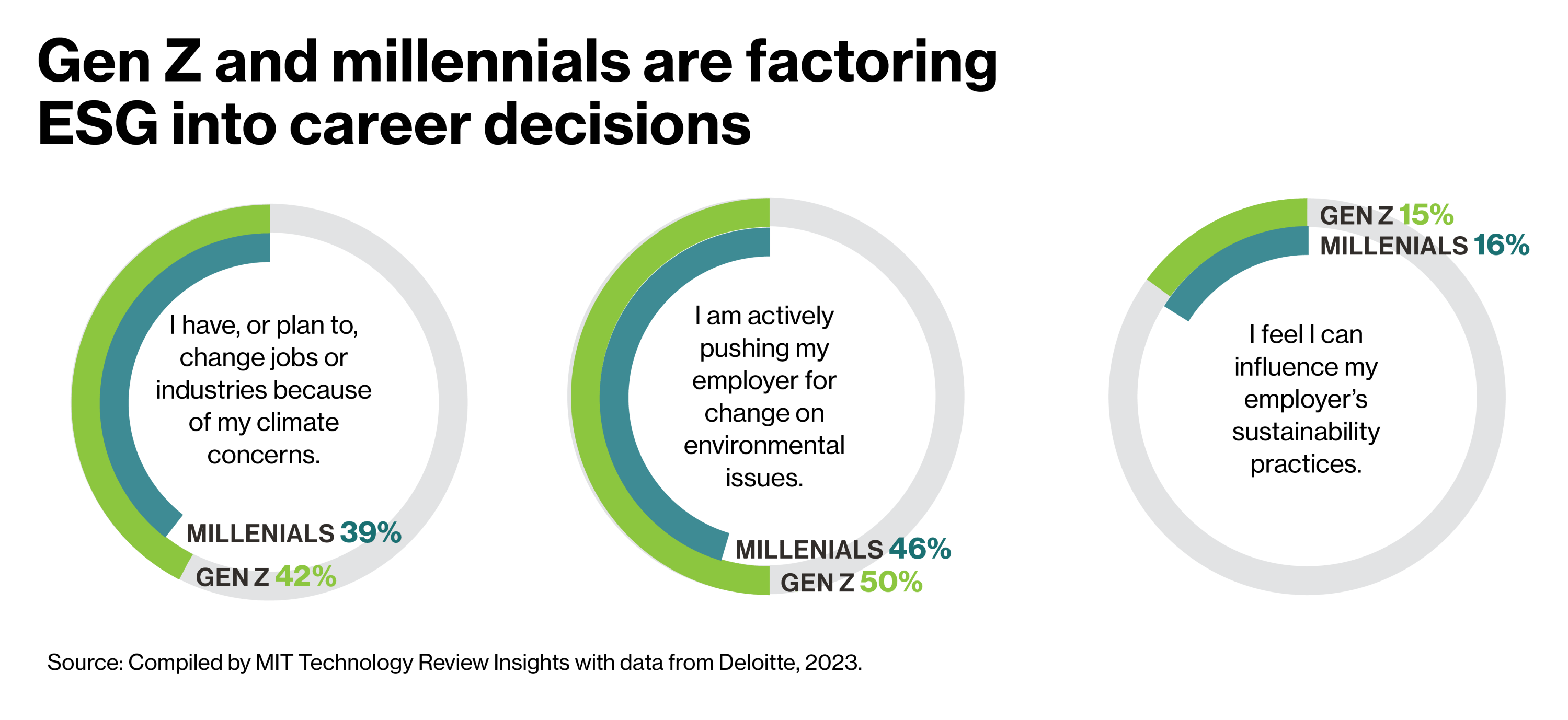Integrating sustainability into business strategy
Multiple factors are driving organizations to prioritize sustainability. Regulations are requiring organizations to meet emissions disclosure requirements. Investors are increasingly incorporating sustainability into decision-making processes. Consumers are demanding environmentally and ethically sustainable products. Employees, particularly millennials and Generation Z, want to work for organizations whose morals and ethics reflect their own. According to the Deloitte Global 2023 Gen Z and Millennial survey, about one in six respondents say they have changed jobs or industries due to climate concerns, with another one-quarter planning to do so.

“In response to stakeholder expectations, we are seeing a shift in businesses taking a more comprehensive view of enterprise value to create value for all stakeholders, including shareholders, customers, employees, society, and environment,” says Clare Nkweto Simmonds, director, global Oracle sustainability leader for Deloitte MCS. Reporting rules and emerging regulations are evolving from boardroom mentions into C-suite priorities.
Discourse around climate change and social justice matters is hardly new: the UN-supported Principles for Responsible Investment, an international network dedicated to incorporation of environmental, social, and governance (ESG) into investment decision-making, boasts nearly 5,000 participating financial institutions. In early 2022, the U.S. Securities and Exchange Commission (SEC) proposed ground-breaking rules to require public companies to disclose information about their carbon emissions data (Scope 1 and Scope 2), and carbon emissions data from supply chain networks and customers (Scope 3).

As U.S. regulators finalize national emission disclosure requirements, the European Union’s Corporate Sustainability Reporting Directive (CSRD) is in effect, requiring nearly 50,000 companies to regularly report on sustainability. At the same time, the International Sustainability Standards Board (ISSB) has now launched global disclosure standards to help guide companies on sustainability disclosures they need to report for global investors and will allow companies and investors to standardize on a single global baseline. “We have to start acting, and we have to start acting now,” says Remy Bos, global sustainability director for Oracle. “New laws and regulations are on the rise, and some have already been implemented,” he says. This calls for careful collection and analysis of vast volumes of data.
“Climate and sustainability initiatives help the planet and drive business value, but not if they increase social inequities in the process. Organizations need to ensure they drive a decarbonization journey, but also ensure that the impact of that decarbonization journey is just and equitable—that it’s a just transition,” Simmonds says.
Download the full report.
This content was produced by Insights, the custom content arm of MIT Technology Review. It was not written by MIT Technology Review’s editorial staff.




